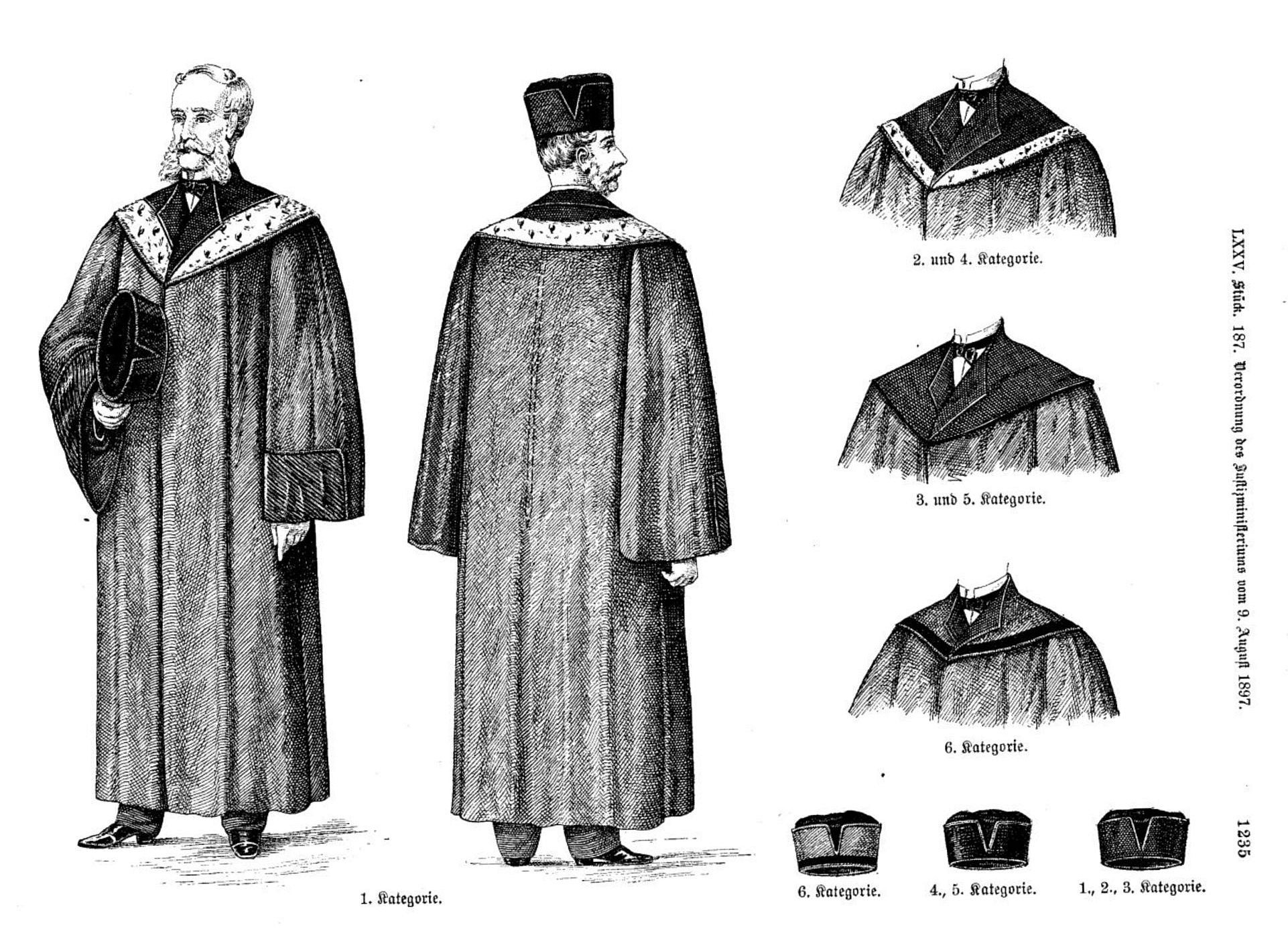Gowns, gavel and solemn oaths – these are part of the rituals that have played an important role in the justice system for centuries. ‘To this day, there is the practice of cordoning off the court, that is, the inner area during a hearing,’ explains Gernot Kocher, emeritus professor of legal history. This was already common practice in the Middle Ages, although there were no courtrooms. ‘Back then, they simply used hazel branches to cordon it off.’
The robe also has a long history, says Kocher: ‘Originally it was the traditional clothing of priests and later of academics.’ After the reforms of Emperor Joseph I and the takeover of the administration of justice by lawyers, they also wore this robe in court.
Until then, lay jurisdiction had been the norm for centuries. ‘Farmers from the surrounding area were obliged to serve in the courts,’ explains Kocher. Today, there are once again courts of lay assessors and lay jurors. ‘But that is a development of the 20th century,’ says the expert. This is a revival of an old tradition.
There are very old rituals that are almost forgotten today, according to the legal historian. ‘In the past, it was common practice in some regions of Austria for the region's farmers to walk the fields together once a year and check the boundaries.’ With the introduction of the land registry and the cadastre, this custom lost its importance.
For the experienced lawyer, rituals in the legal field have an important function. “They strengthen the population's trust in the judiciary and at the same time convey a respectful distance”.
Strengthening democracy
Trust in state institutions strengthens democracy, explains Matthias Lukan, a professor at the Department of Public Law and Political Science. That is also one of the purposes of rituals such as the swearing-in, he says. ‘It starts at the very top with the federal government, which swears to uphold the law and the constitution before the federal president.’
This process is repeated every year when conscripts are sworn in before the Federal President or provincial governors. ‘There are even rituals for more menial positions. For example, members of the wine-tasting commissions have to swear an oath of neutrality,’ explains Lukan.
A uniquely Austrian ritual is the negotiations that take place within the framework of the social partnership. This developed in Austria after the Second World War, also with the history of the dictatorship in the corporate state in mind. ‘Every autumn, the representatives of employees and employers meet. Then, with much fanfare, their negotiations for salary adjustments begin,’ explains Lukan. The result is a ritual that many Austrians appreciate: the annual salary adjustment. A tradition that is by no means common in other countries.
